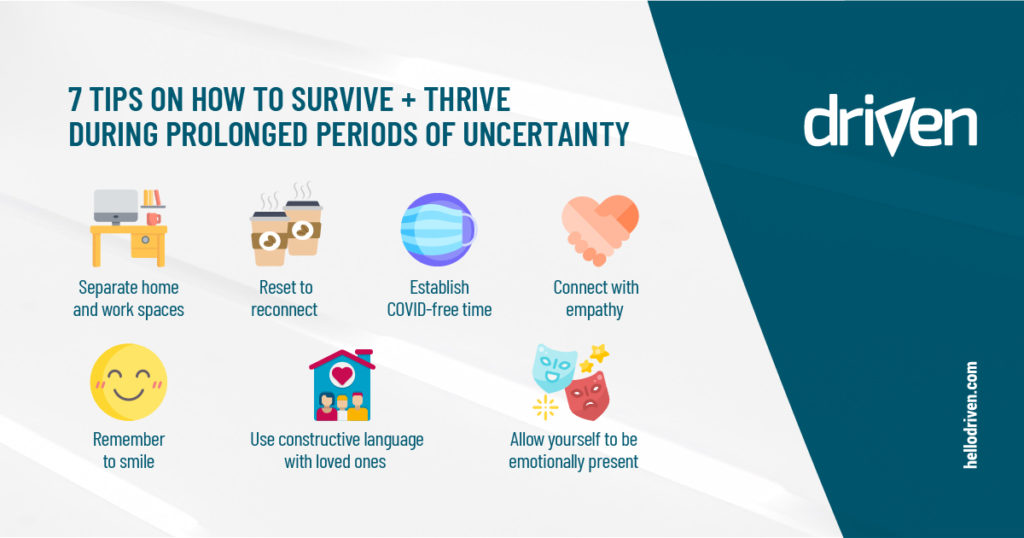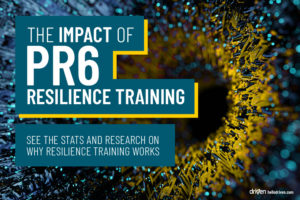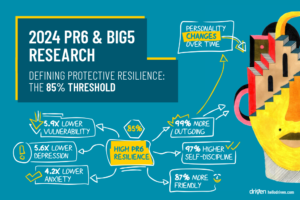Practical mental health tips from resilience experts on how to survive and thrive post lockdown
As millions of Australians on the eastern seaboard prepare for life outside of lockdown, resilience experts are foreshadowing a period of mental adjustment as people in New South Wales prepare to resume “semi-normal” life post-lockdown.
Maria Ruberto is a psychologist and adviser to global resilience trainer Driven. She says while the easing of restrictions will bring relief, it will also bring a new set of mental challenges and changes for many.
“It’s important to mentally prepare ourselves for this transition, as we adjust to this new lifestyle. During a lockdown, many people have reported that they feel unsure about going back into their workplace or interactive social life. It is a normal response to feel a loss of confidence due to being ‘out of practice’,” she says.
Ruberto says many Australians have experienced the impact on their mental health of prolonged stress, uncertainty and restrictions on daily life.
“Resilience is key to strengthening our minds to help cope with all of these changes,” she says. Ruberto works with Australian organisation Driven, which provides global research, training and coaching in resilience.
She says by building resilience and adopting some simple strategies, we can prepare to navigate the mental mind shift of slowly adapting to a new “semi-normal” life post lock-down.
She says this is unlikely to be a linear curve, but rather one that continues to bring constant change. Therefore it’s important to focus on simple, familiar routines that invest in our mental and physical health and wellbeing during this time of transition.
Ruberto proposes seven simple tips to help navigate the mental shift as lock-down begins to lift:
1. Separate home and work spaces
Even though “freedom day” is on the horizon, many businesses will continue some form of work from home. That means home and work will continue to be combined for many. That blending of spaces makes it difficult to keep home and work roles separate, and reduces our mental capacity when we tend to fulfill multiple roles at once. As home-based workspaces may become more permanent for many, it’s important to create separate workplaces where possible. When you’re finished or on a break, leave that workspace or shut the door so you can enjoy home in your downtime.
2. Reset to reconnect
With the increase of vaccinations and the easing of restrictions, we will begin to see our civil spaces once again being filled with social activity. This is our opportunity to not only reconnect and re-establish our social bonds with others, but also to reset our relationships at home. Having ‘time-out’ of the house and re-engaging in activities like walking, cycling, shopping and getting coffee, allows us to reset the relationships within our homes.
3. Establish Covid-free time
Even outside of lockdown, focus on having COVID-free time. This is a time where no one talks about COVID. This gives us space to have “conversations of care”, where we can connect beyond the current circumstances, avoiding pandemic fatigue and negativity.
4. Connect with Empathy
We’re social beings that are wired to connect. That connection is not only important for our social survival, but also for building wellbeing. It’s important to connect with others in empathy, while at the same time as building our own resilience. It’s important to listen to others with intent and be present to others’ needs. Empathy is not about fixing or problem-solving, but about listening and respecting others’ emotions without judgement. These feelings and emotions will continue to be challenged, even outside of lockdown.
5. Remember to smile
As we emerge from lockdown we’ll have an opportunity to rebuild our social spaces, and smiling at others can help boost the mental state of others. Check your facial expressions and be more aware of when you’re frowning – and try to smile more.
6. Use constructive language with loved ones
Try to use positive language, and avoid overly negative or pessimistic topics or conversations. Our thoughts have the capacity to activate parts of the brain that signal an alert response, even when there’s no real danger present. Resilience training teaches us to avoid negative language, check that our language is helpful and hopeful, and to notice strengths, give compliments, and show gratitude.
7. Allow yourself to be emotionally present
And finally, allow yourself to be emotionally present. It’s normal to feel burdened with unpleasant emotions while we’re surrounded by change, but we can train ourselves to use these feelings to grow.
Driven defines resilience as “advancing despite adversity”. It provides resilience first aid training to enable individuals to build skills to make better decisions and raise our capacity to cope and problem solve.
The company has identified, through global research, six unique aspects to resilience, all of which can be strengthened. These include composure, reasoning, collaboration, tenacity, vision and health.
By strengthening these six areas, we can strengthen our mental mindsets and wellbeing. “Think of it as resilience fitness training,” Ruberto says.
“To build resilience, it’s important to get the basics right. You can’t perform at your peak if you’re not looking after basic health needs like sleep, rest and nutrition,” she says.
“Developing resilience is a preventative action to help foster mental health and wellbeing. It’s going to become critical as we emerge from lockdown,” she said.
About Driven
Driven is an Australian organisation that provides global resilience training for workplaces and individuals. It operates a scientifically proven AI-powered virtual coach for individuals to enhance mental health and resilience.
Driven is soon to launch a new Resilience First Aid course in Australia focused on building skills to proactively support mental health in corporate teams, first responder organisations and individuals. This training helps to identify signs of low resilience, teaches people how to use positive and proactive language, and develops skills that improve resilience.
For media enquiries and interviews, contact Avril Turner, avrilt@minthealth.com.au
or 0400 302 271
Spokespeople [available for interview]
Maria Ruberto, Psychologist and Driven consultant
Jurie Rossouw, Resilience expert and CEO at Driven. View a short video of Jurie here.



